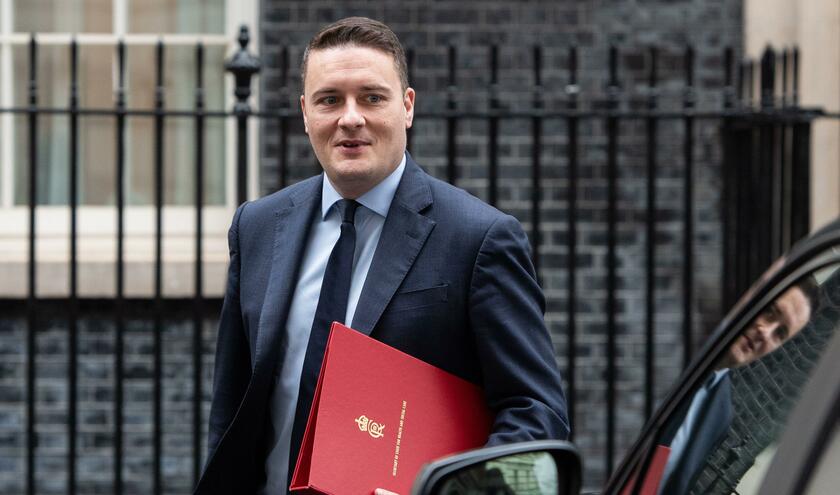Productivity grew by 2.4% in the first four months of the April-July 2025 financial year, above the Government's 10-Year Health Plan target of 2% over the next three years but slightly down on 2.7% growth between April 2024 and March 2025.
Streeting said: ‘This data shows our reforms are bearing fruit as the NHS continues to outperform its productivity target.
‘We've sent in crack teams of top clinicians across the country, opened up more services at evenings and weekends, and slashed agency spending by almost a third.
‘It's leading to more patients treated and less taxpayer money wasted.
‘We know there's more to do, but these numbers show the NHS is turning a corner.'
The Government said the figure, which is based on the output of treatments, operations and appointments, had been achieved through more same-day discharges, shorter hospital stays, better use of technology, reduced reliance on agency staff, reductions in back office staff to reinvest funds in the front line, improved staff retention and more surgical hubs and community diagnostic centres running evening and weekend appointments.
Streeting added: ‘There are people questioning whether universal healthcare is still affordable. We are showing that the NHS, free at the point of use and available to all, can survive and thrive in the modern age. With relentless focus on productivity, the NHS can be sustainable for taxpayers and deliver for patients once again.'
Reaction and analysis
Chief executive of NHS Providers, Daniel Elkeles, said: ‘This is great news for patients, taxpayers and the future sustainability of the NHS.
‘Trust leaders are keenly aware of the need to make the most of every pound spent on the health service, while protecting and improving the quality of care.
‘We've seen important wins in reducing agency costs, harnessing digital advances and developing new approaches to care.
‘I firmly believe we can expect further gains as the benefits of AI take root.
‘But outdated buildings and equipment place a big drag on NHS productivity.
‘We have shown how the health service could unlock billions of pounds in capital investment to transform care for patients, revive high streets and deliver key worker housing.'
The NHSE figures diverged significantly from data published by the ONS, however, which showed a 1.5% drop in healthcare productivity for the second quarter of 2025.
The DHSC said NHS England's measurement methodology was more reliable than alternative approaches because it used established, quality-assured acute sector data and gave a comprehensive view of efficiency improvements rather than simple activity counts by, for example, giving more weight to brain surgery than cheaper, more routine procedures.
Sally Gainsbury, Nuffield Trust senior policy analyst, said: ‘It is important to note that the methodologies for each estimate differ quite widely. Although NHS England's metric only covers the acute sector, this is the area of NHS spend for which the measurement of resource inputs and outputs is more established, and for that reason, we favour NHS England's assessment that, within the acute sector at least, activity appears to have grown faster than inputs, after adjusting for the significant increase in NHS pay rates in 2024-25.
‘Improved productivity is good news for patients and the taxpayer. But these gains could be wiped out if the NHS ends up paying higher prices for branded new medicines, as is rumoured. Ultimately, NHS productivity matters because it's a measure of the benefit patients get from the health service's funding. But if the Government caves to industry demands to pay higher prices for new branded drugs, that will mean diverting funds away from existing healthcare services and treatments which offer far greater healthcare benefits than expensive new medicines.'
Stephen Rocks, head of the secretariat for the NHS Productivity Commission at The Health Foundation, said: ‘A further increase in acute NHS productivity in England is welcome and reflects the hard work of staff across the country. But this is for hospital care only and - with other indicators pointing in a different direction - we need to know what is happening across the whole health care system. The real test isn't what happens in one quarter, it's whether the NHS can back the enablers of productivity - people, capacity, innovation and leadership - to sustain growth through this Parliament and beyond.'
Matthew Taylor, chief executive of the NHS Confederation, said: ‘If the NHS is going to tackle its infrastructure woes and continue to improve productivity the Government will need to continue to increase capital investment. We are also urging ministers to give the green light for the NHS, including acute hospitals, to explore using private capital investment to build modern healthcare facilities fit for the 21st century.'



